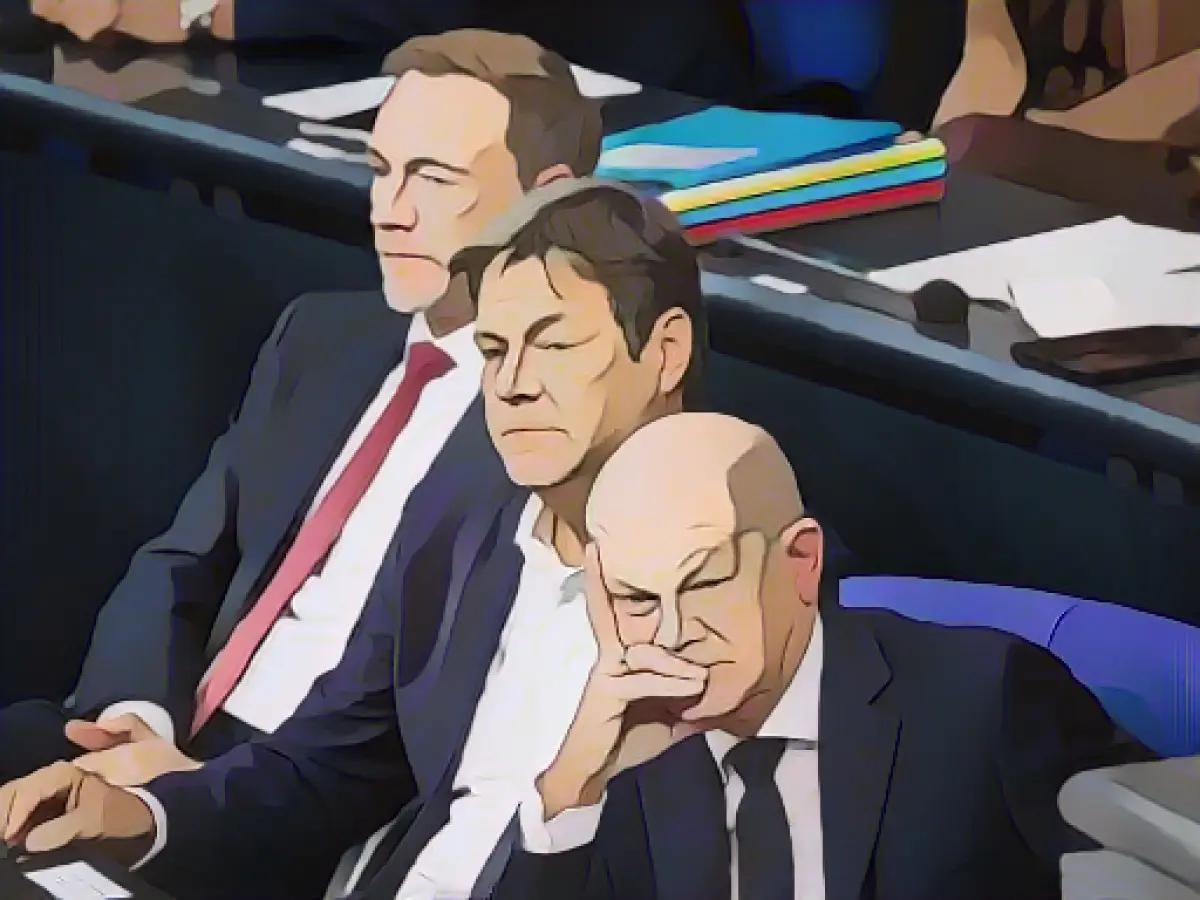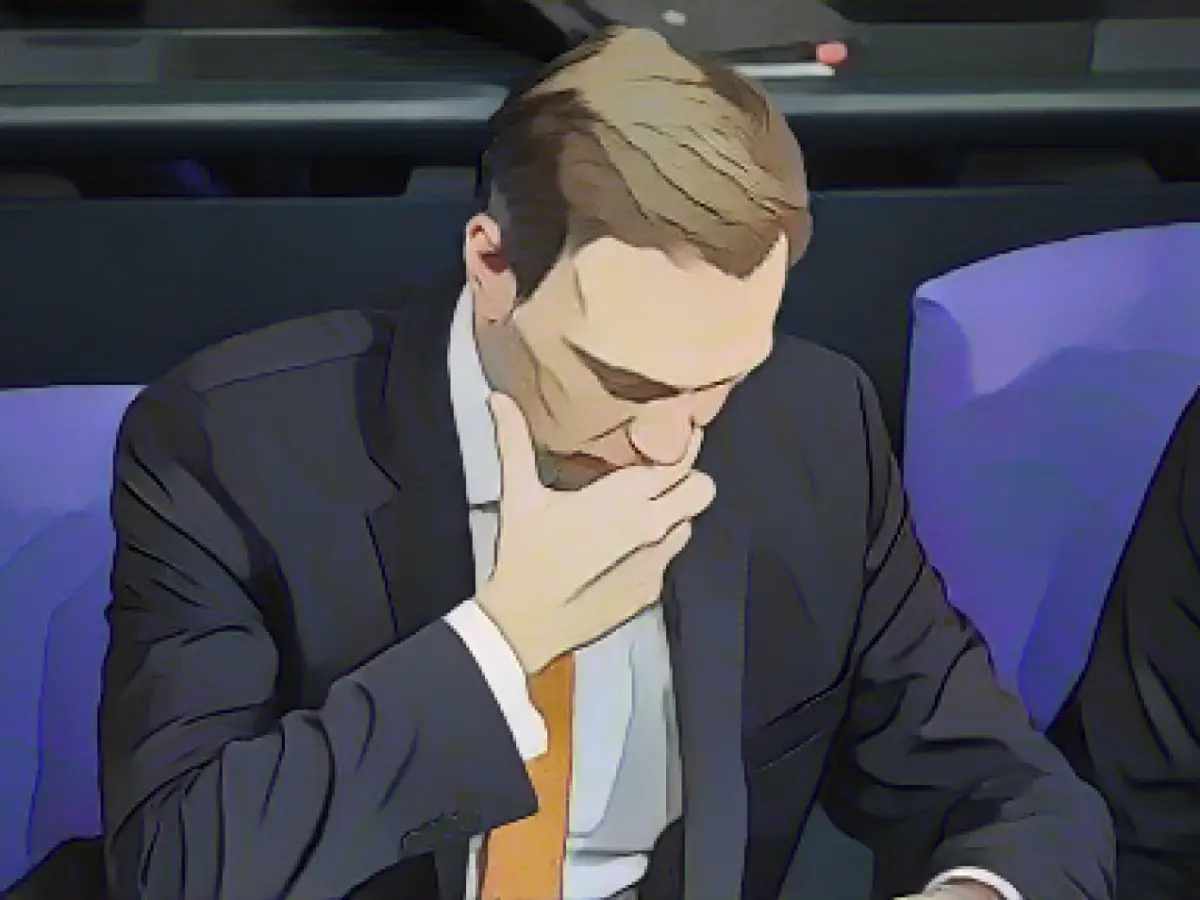Budget rulings cast a shadow: implications of the Karlsruhe verdict
Following the Karlsruhe verdict, the spotlight has turned on Germany's secondary budgets. As of now, it appears that 60 billion euros earmarked for climate projects and economic modernization have been trunked. The question remains: are additional billions on the sidelines, such as those planned for energy price brakes, in danger? Furthermore, what about expenditures made in the current fiscal year? Legal eagles and policymakers are laboring to evaluate the situation.
In its ruling, the Federal Constitutional Court invalidated reallocating coronavirus loans into the Climate and Transformation Fund. Key factors in the court's decision included the federal government's lack of permission to exploit the debt brake exception to rack up loans prematurely.
Multiple questions arise from this constitutional judgment, such as whether projects from the climate fund will be moved to the regular 2024 budget, and if the budget for the coming year can even be approved within the short term. Experts seem to be in agreement on something, however: wide-ranging implications are likely in store - probably not only for the climate fund, but also for additional special funds. Economics Minister Robert Habeck (Greens) predicts that loans for energy price brakes are teetering, with potential consequences for citizens.
What are the special funds managed by the federal government, anyways?
According to a Census conducted by the Federal Audit Office, a whopping 29 special funds are currently administered by the federal government. The roots of these subsidiary budgets trace back as far as 1951, supporting housing construction for miners. Funds also include ones dedicated to the employment of severely disabled individuals, inland waterways, daycare expansion, and digital infrastructure.
More recent special funds include economic aid during the coronavirus pandemic, reconstruction aid for flood victims, the 100 billion euro special fund for the German Armed Forces, and the energy price brakes fund following the Russian attack on Ukraine. Are all these funds susceptible to the Karlsruhe ruling?
Not necessarily - and here's why. The Federal Constitutional Court only targeted debt-financed special funds. However, funds financed by their own revenue like the "ERP" special fund, which was initially endowed with Marshall Plan resources, are likely to skirt the ruling. In addition, special funds established prior to the introduction of the debt brake or with assets generated beforehand are exempt.
How does the ruling impact the military's budget?
The current view from the three-party coalition is that the military's budget remains unaffected. This is due to the German Parliament stipulating that a 100 billion euro Special Fund filled with loans be legally anchored in the country's Basic Law. In an attempt to secure its safety, the FDP reportedly played a significant role in this arrangement.
What happens if the funds for energy price brakes wobble?
Similar to the Climate and Transformation Fund, which was barraged by the Federal Constitutional Court, the Economic Stabilization Fund (WSF) may also be at risk. In 2022, the federal government authorized 200 billion euros in loans to offset the skyrocketing electricity, gas, and district heating prices. However, these funds are not only earmarked for 2022 but 2023 and 2024 as well. With this in mind, Economics Minister Habeck expresses concern that the WSF may be compromised.
Could consumers find themselves liable for aid grants?
It's highly unlikely that aid disbursed in 2022 will necessitate repayment by consumers. This is because the German government and Parliament have surreptitiously agreed on the energy price brakes, leaving the responsibility for financing to themselves. However, it's conceivable that the government may discontinue the price brakes early, i.e., in 2024, to protect consumers against future price increases.
What clarity might the hearing on November 22nd bring?
Expert evaluations were published a day prior to the November 22nd hearing. They offer mixed views on the WSF's likely impact, with many underlining that the consequences aren't entirely clear.
The controversy surrounding the 2024 budget is one of the major divisive issues among the experts. While some believe that the core budget should be approved as usual, others opine that it could be unconstitutional, given the uncertainties surrounding the energy price brakes. Tax law expert Hanno Kube from the University of Heidelberg warns against approving the 2024 budget as-is, while economist Jens Südekum advises that the Bundestag commit to a normal budget, given the challenges in gaining a comprehensive understanding of the ruling's impact.
Does the ruling only pertain to special federal funds, or state budgets as well?
The federal government proposes that the Karlsruhe ruling may extend to state budgets as well. Some federal states have special funds with similar debt finance mechanics, but consequences remain unclear.








